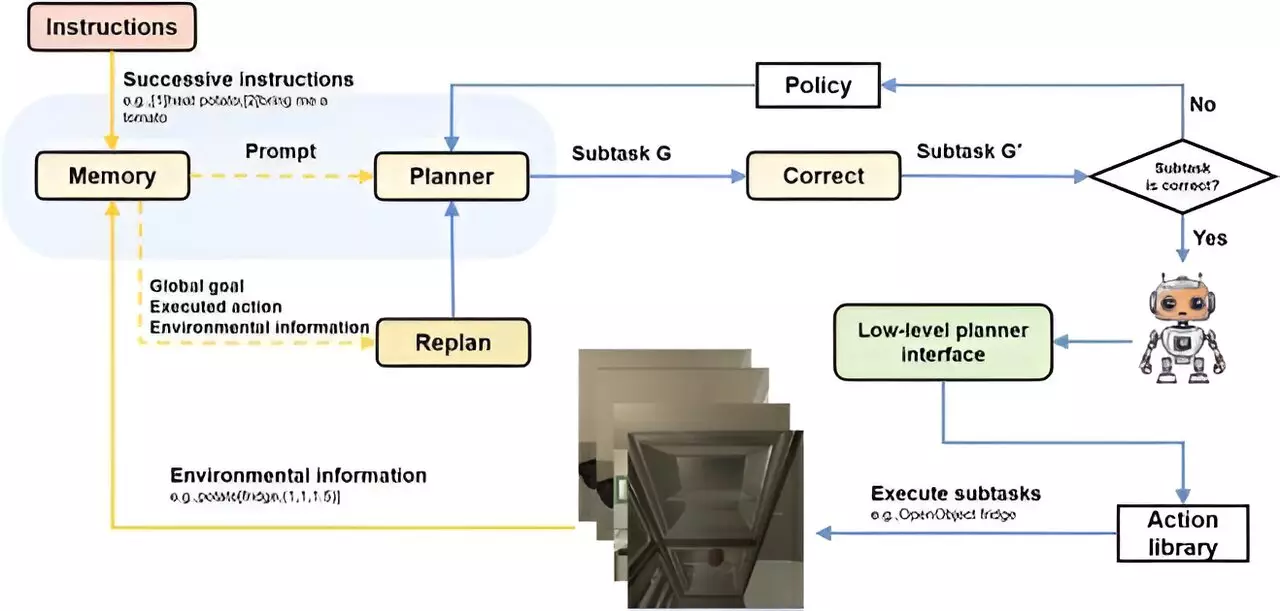The study conducted by researchers at Shanghai University has introduced a groundbreaking artificial intelligence framework known as “Correction and Planning with Memory Integration” (CPMI). This framework utilizes large language models (LLMs) to enhance the capabilities of robots when it comes to interpreting and executing tasks efficiently. Unlike traditional methods that rely on explicit programming and extensive data, the CPMI framework integrates memory and planning features within LLMs, allowing robots to adapt and learn from their experiences in real-time.
Led by Yuan Zhang and Chao Wang, the research team has taken a dynamic approach by utilizing LLMs as central decision-making elements in robotic tasks. This innovative use of AI technology enables robots to breakdown complex instructions into actionable steps, plan their actions more effectively, and make corrections in response to obstacles or errors. The standout feature of the CPMI framework is its memory module, which gives robots the ability to remember past tasks and learn from them, similar to human memory. This capability enables robots to operate more efficiently over time and quickly adapt to new situations.
The research team tested the CPMI framework in the ALFRED simulation environment and found that it outperformed existing models in “few-shot” scenarios. This means that the framework demonstrated higher success rates, improved task efficiency, and enhanced adaptability. Chao Wang, the corresponding author of the study, highlighted the significance of integrating memory and planning within an AI-driven framework, stating that it not only boosts robot performance but also reduces the need for extensive pre-programming and data collection.
The potential applications of the CPMI framework are wide-ranging, from enhancing household robots’ capabilities to improving industrial robots’ efficiency in complex manufacturing processes. As LLMs continue to evolve, robots equipped with the CPMI framework are expected to become more autonomous and intelligent. The research team at Shanghai University remains optimistic about the future of robotic technology and plans to enhance the framework’s memory capabilities while testing it in diverse and challenging environments.
The research conducted not only sets a new standard for AI in robotics but also paves the way for integrating advanced AI technologies into everyday life. With continuous development in frameworks like CPMI, the vision of having intelligent and versatile robots capable of performing various tasks independently is becoming increasingly achievable. The potential of this technology extends beyond robotics and could impact any field that relies on complex, real-time decision-making processes.
The integration of artificial intelligence frameworks like CPMI marks a significant milestone in the evolution of robotics. By leveraging memory and planning capabilities within LLMs, robots can enhance their performance, adaptability, and efficiency. As researchers push the boundaries of AI technology, the future holds promising advancements in robotics that could revolutionize various industries and everyday life.


Leave a Reply